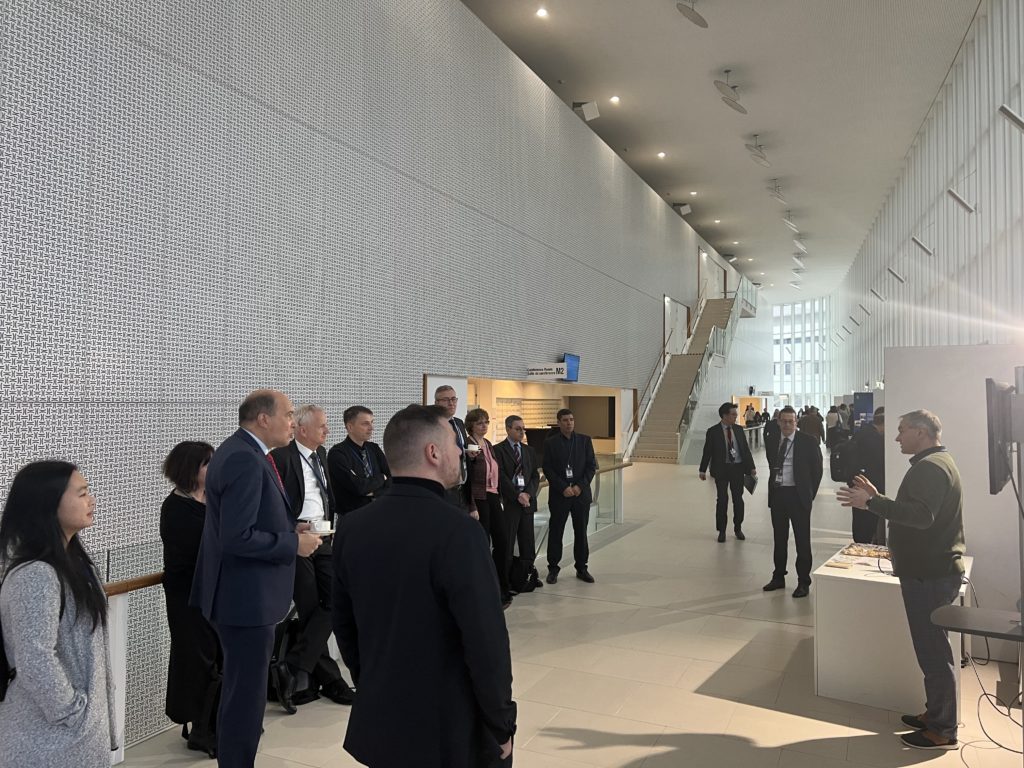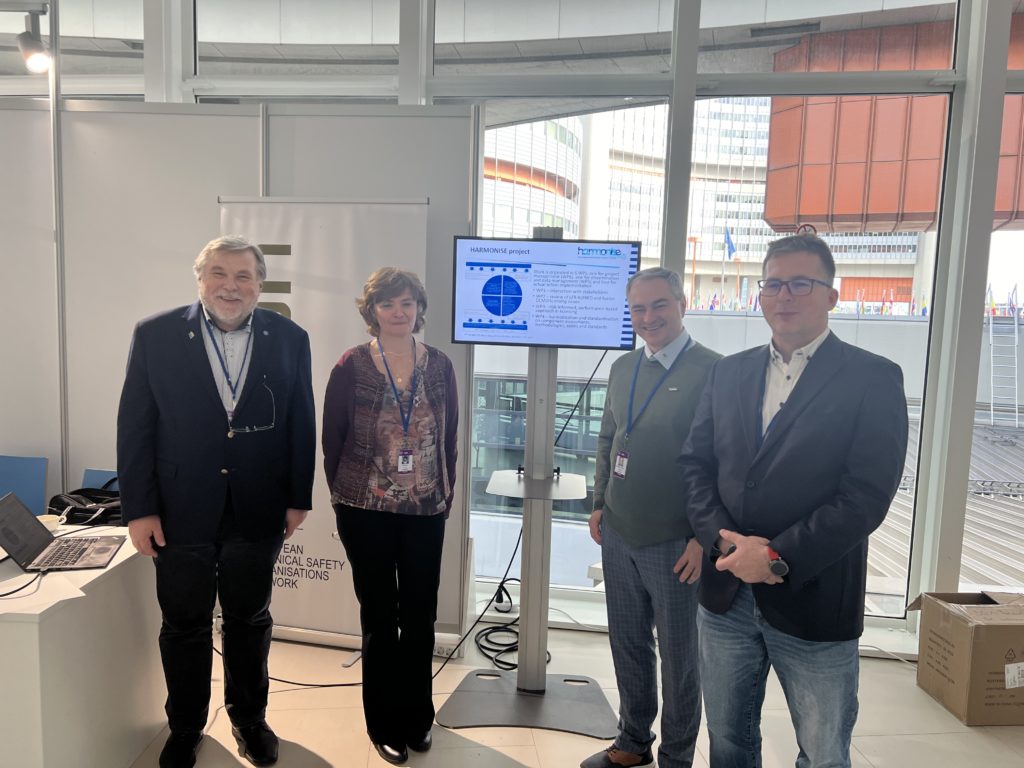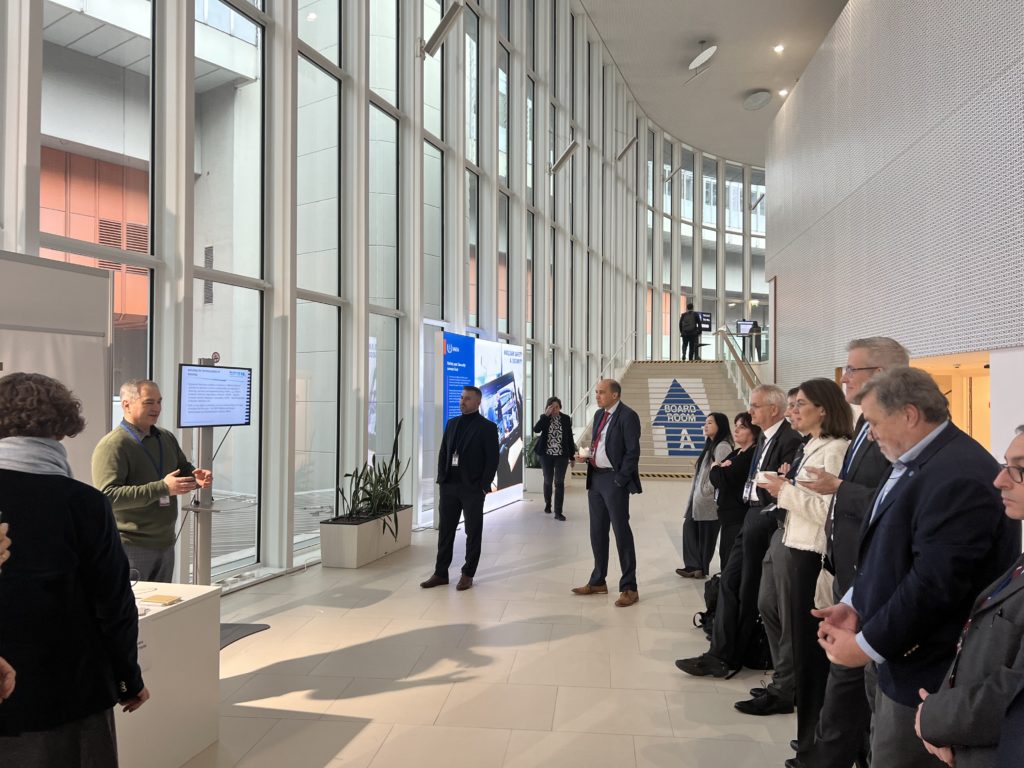
The HARMONISE project’s fourth workshop was held in Vienna, AT
In the framework of the fourth workshop with the stakeholder network, short presentations were given at the TSO Café of the “International Conference on Enhancing Nuclear Safety and Security Through Technical and Scientific Support Organizations (TSOs): Challenges and Opportunities in a Rapidly Changing World”. The event took place in-person, in cooperation with ETSON, in the premises of the International Atomic Energy Agency in Vienna, Austria on 3 and 4 December 2024.

The scheduled briefs started with an overview of the HARMONISE objectives and partnership as well as the project’s main achievements and progress made during the last thirty months.
A detailed discussion regarding activities performed within work package 1 “Stakeholder network” revealed both the main drivers needed to achieve an effective harmonisation and the major challenges faced during the regulatory framework harmonisation emphasising the requirement for an early and active stakeholder involvement.
A presentation of the work package 2 “Licensing needs of innovative NPPs” actions introduced the need for achieving harmonisation along two main axes, namely: technologies and States. The key findings of the analysis performed along the technology axis were delineated while the activities along the State axis are in progress.


A comprehensive talk on the HARMONISE activities related to a risk-informed, performance-based approach referred to the challenges faced in SMR licensing and the need for developing a technology-neutral, risk-informed and performance-based approach for licensing innovative nuclear power plants.
The need to support innovative reactor projects in terms of codes and standards, including digital technologies, as well as the challenges encountered in the codes and standards harmonisation were introduced during a work package 4 “Towards codes and standards for advanced nuclear systems” activity brief.
A presestation of a SWOT analysis main features characterizing the Best-Estimate Plus Uncertainty (BEPU) approach in severe accident analysis and the need to develop a harmonised BEPU methodology concluded the event.

